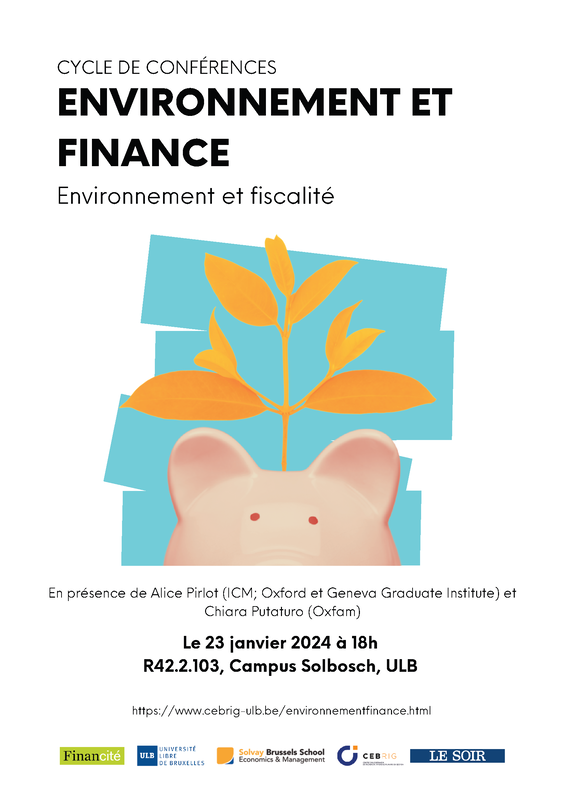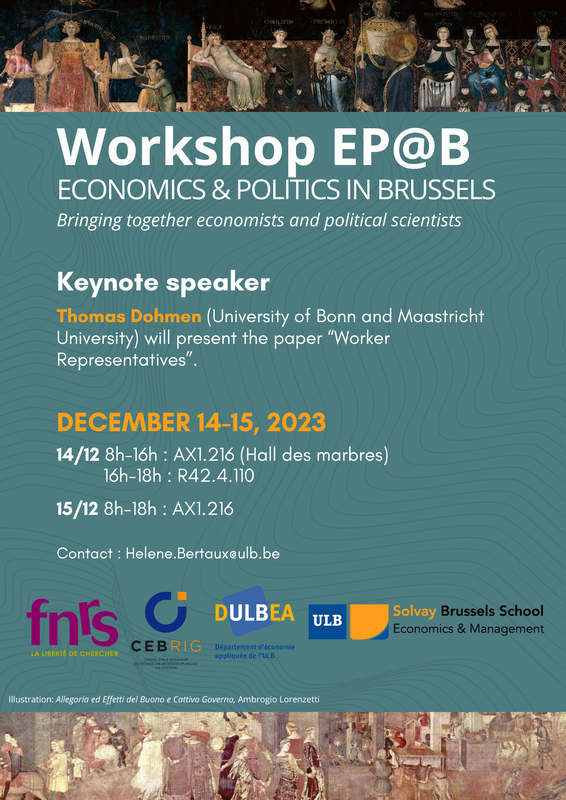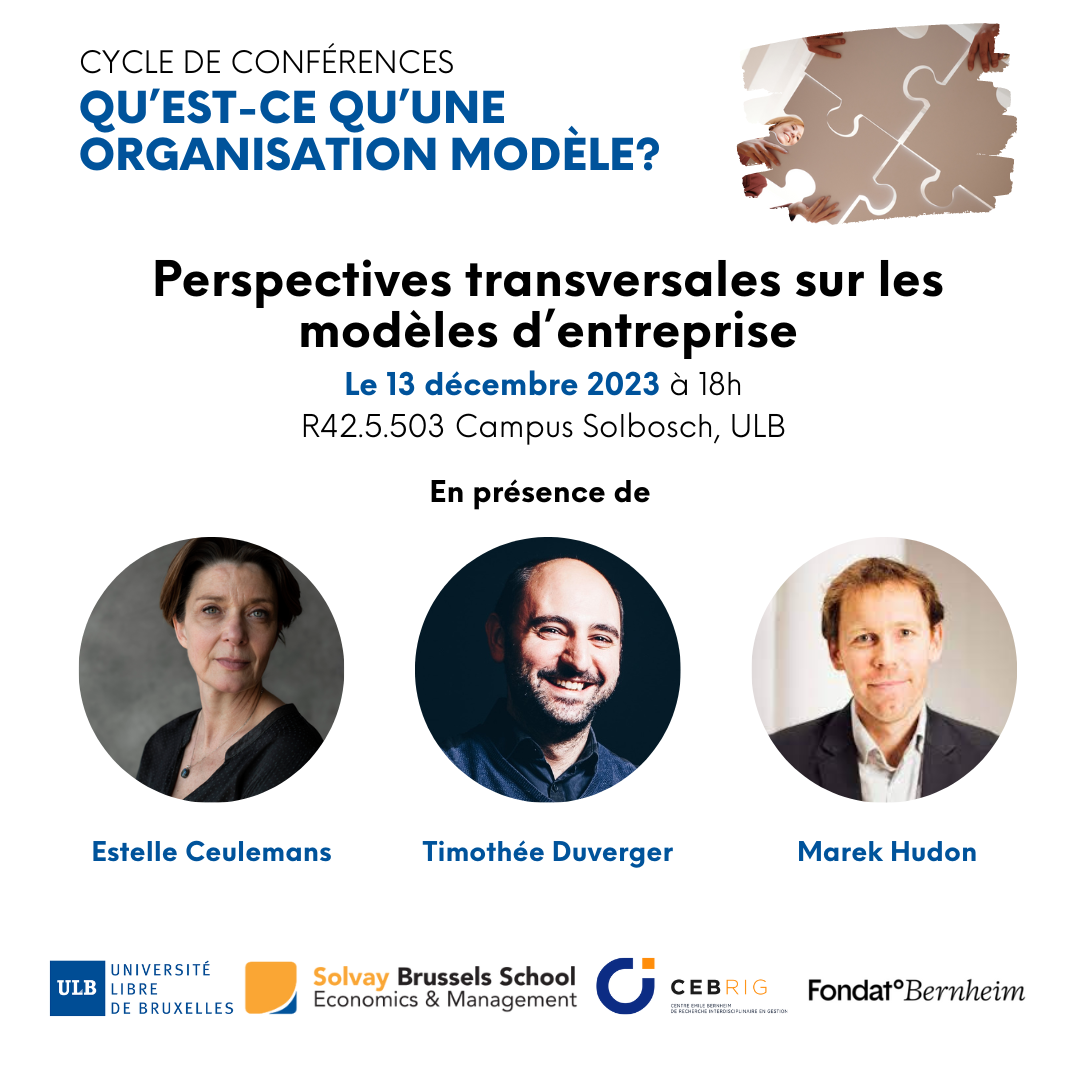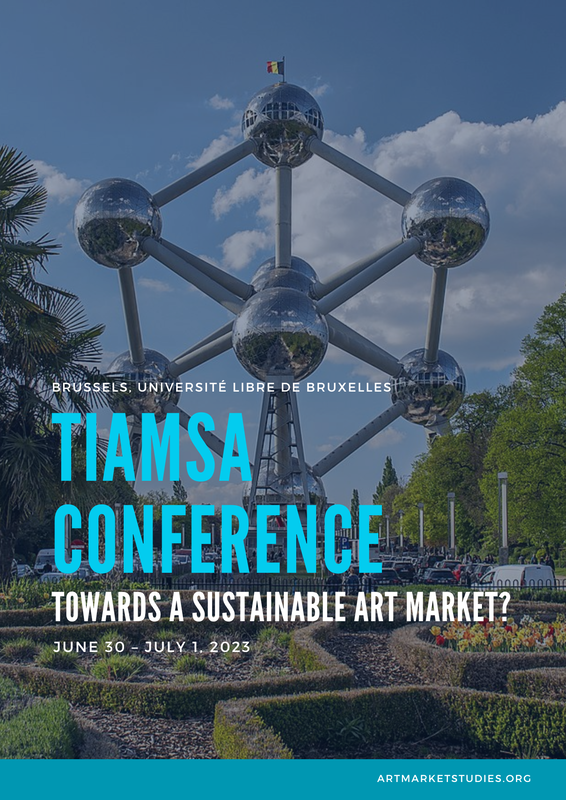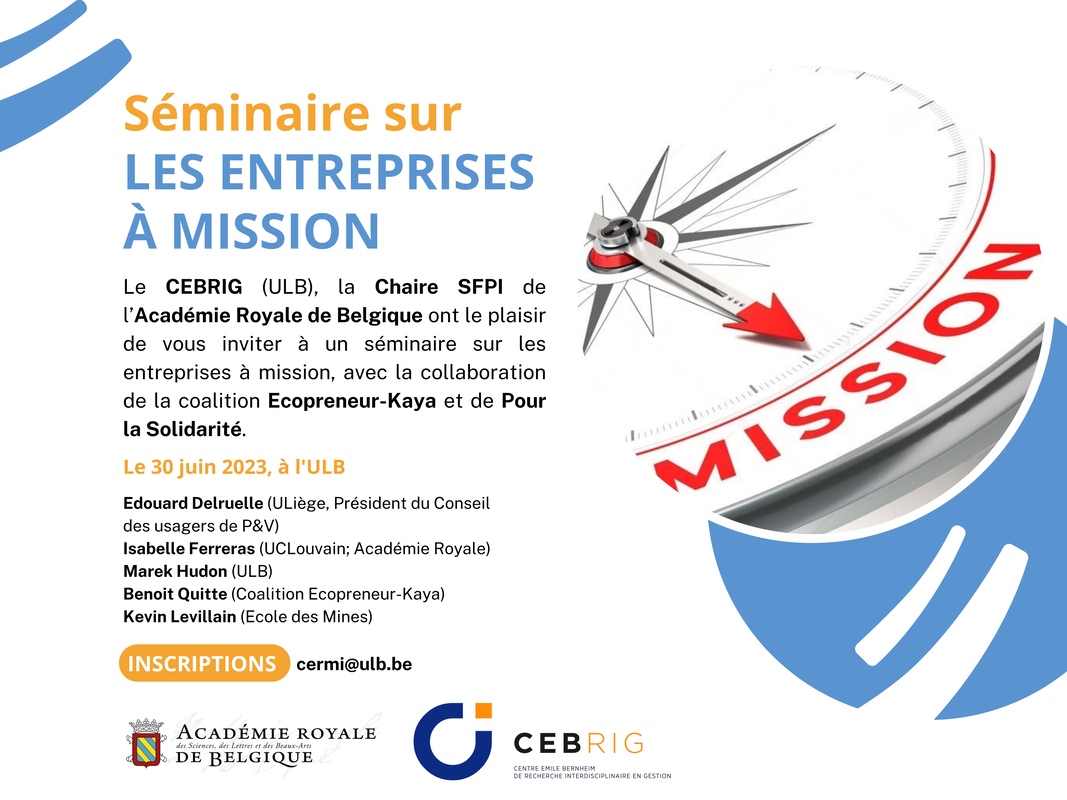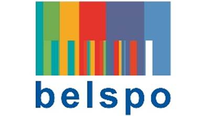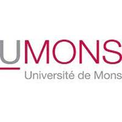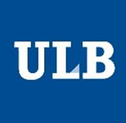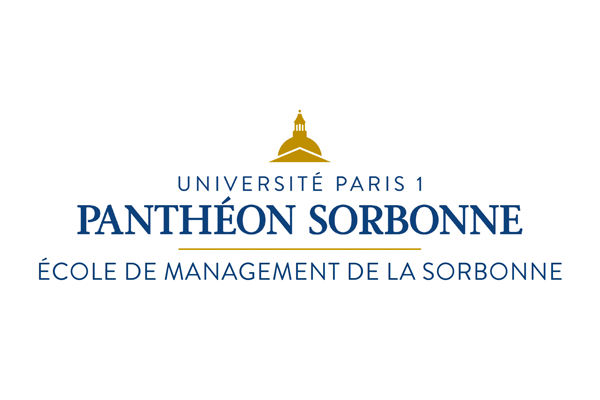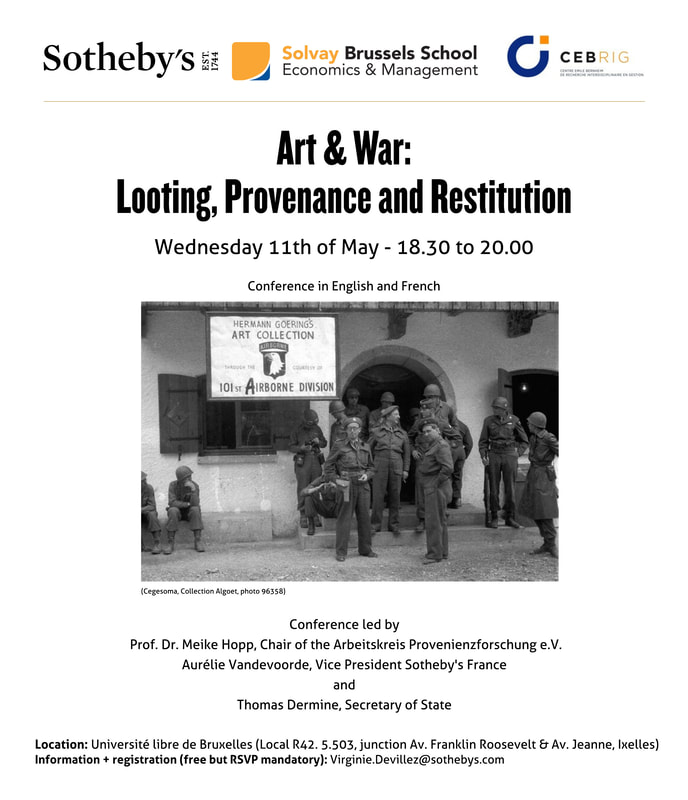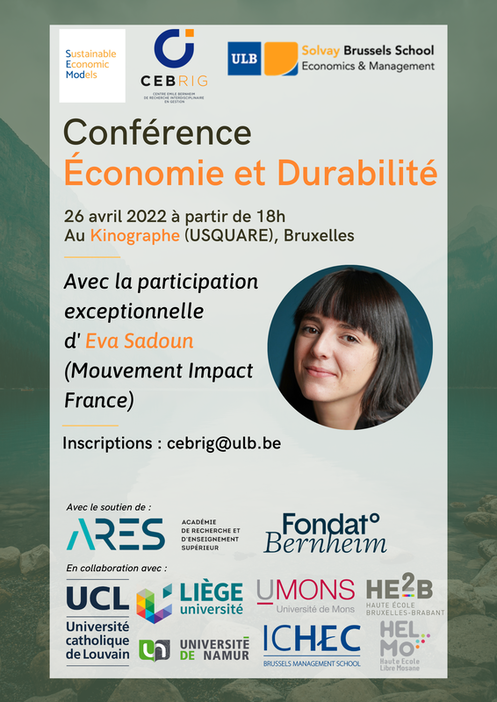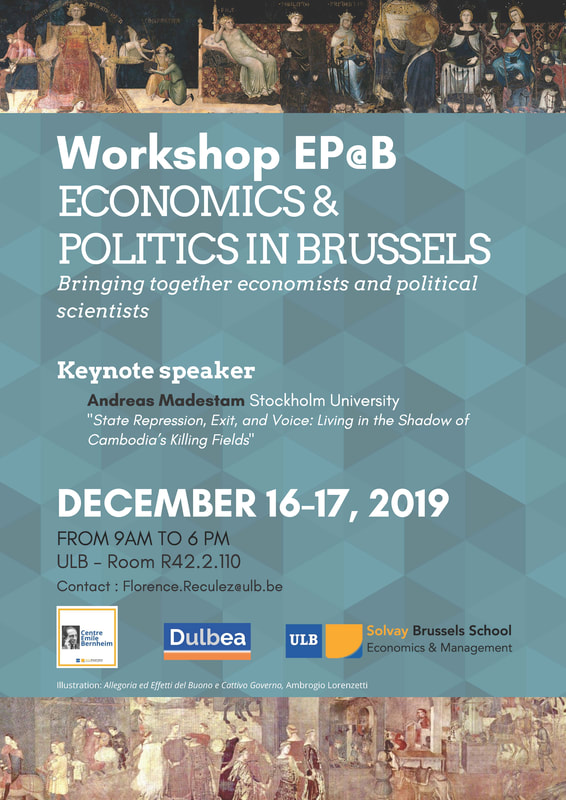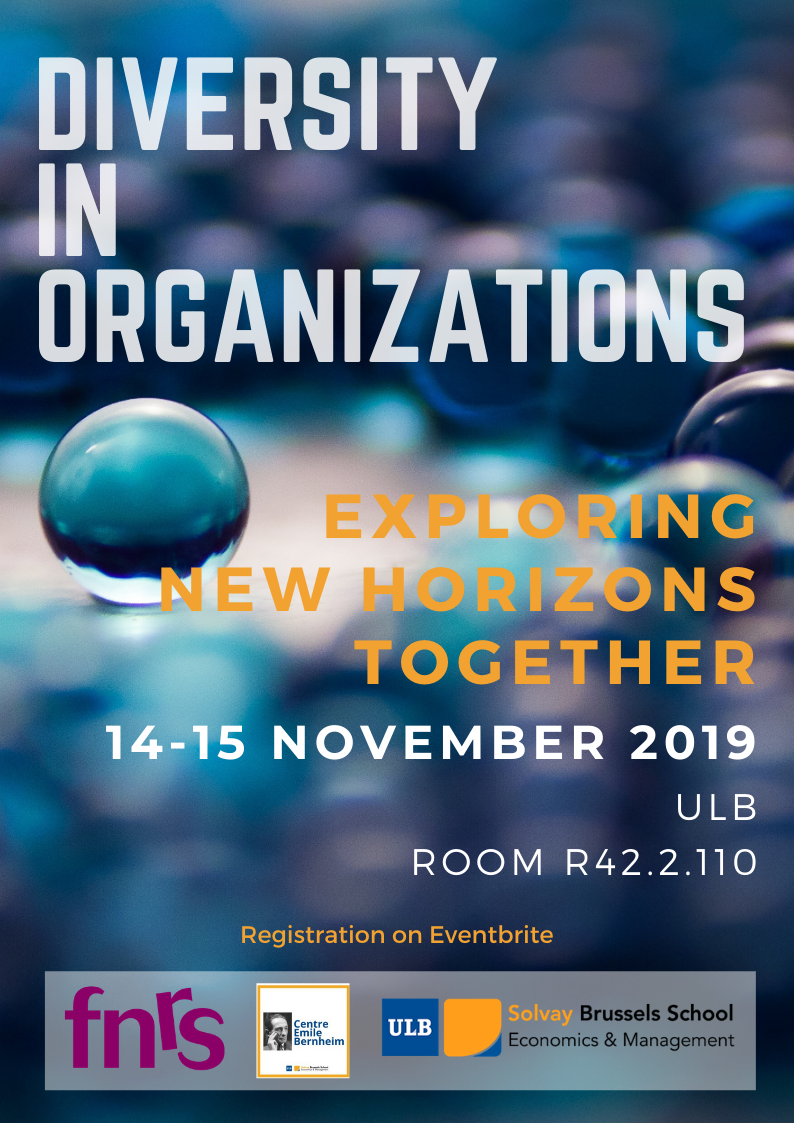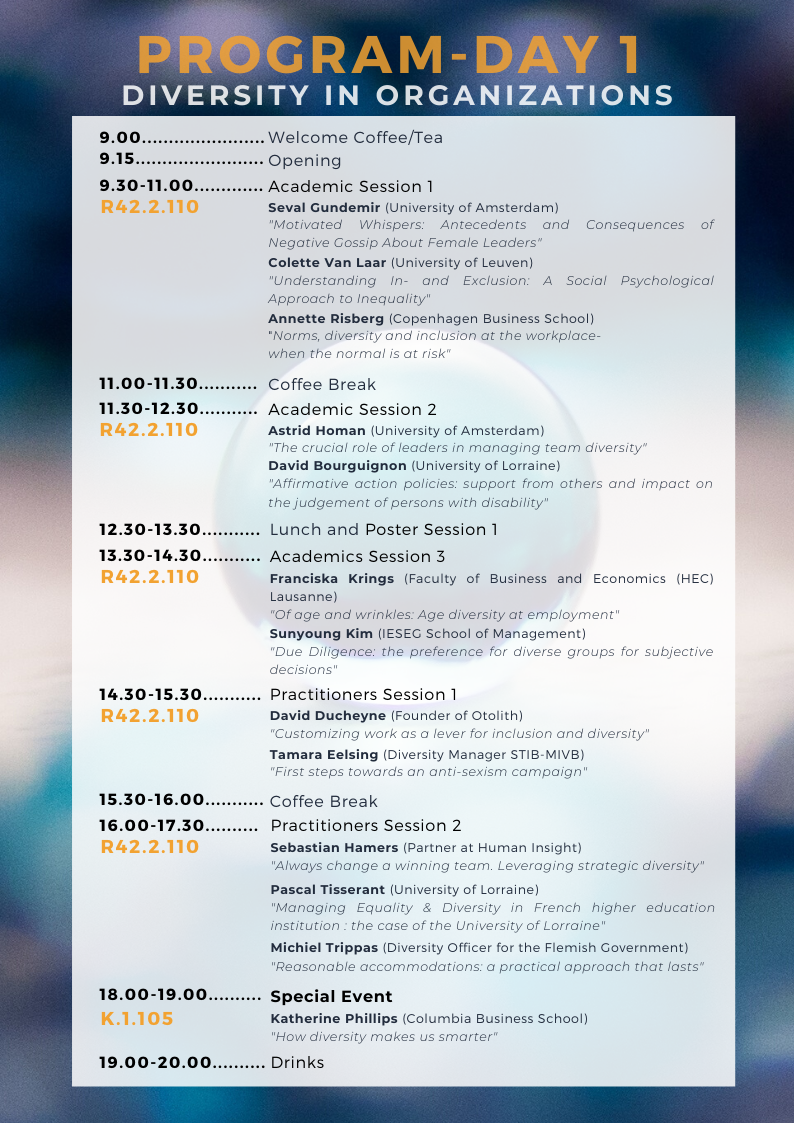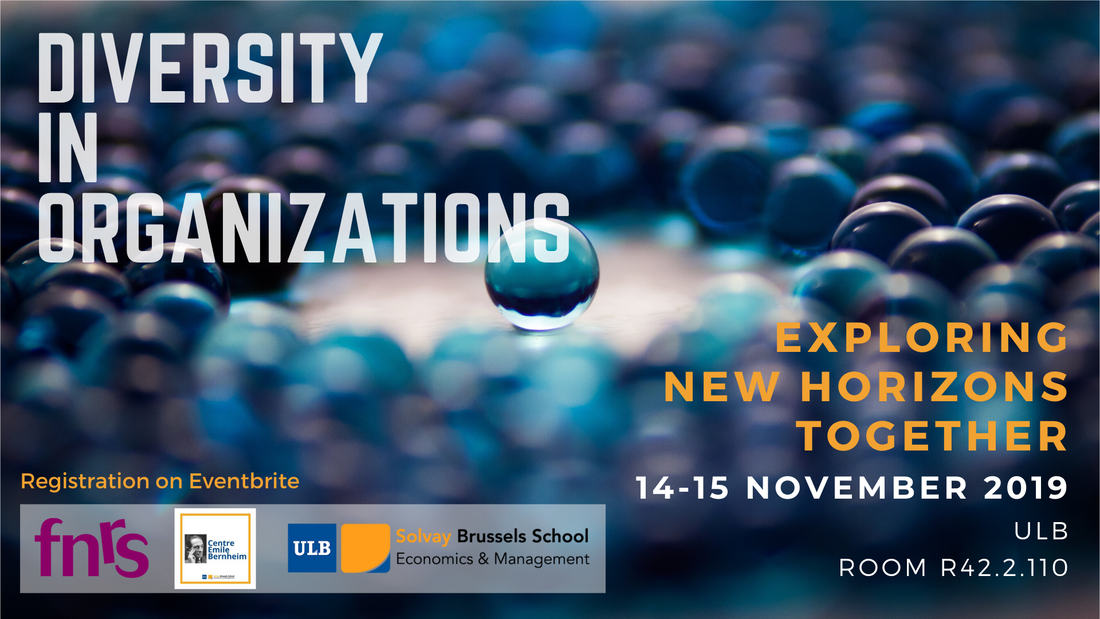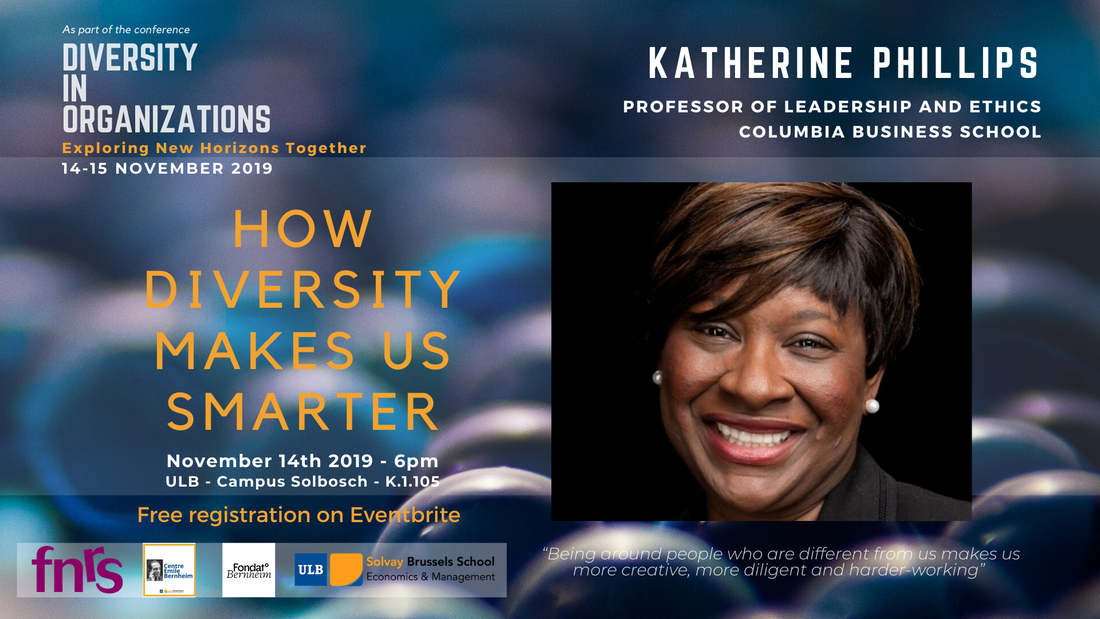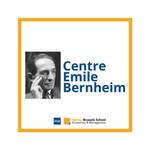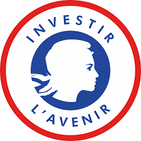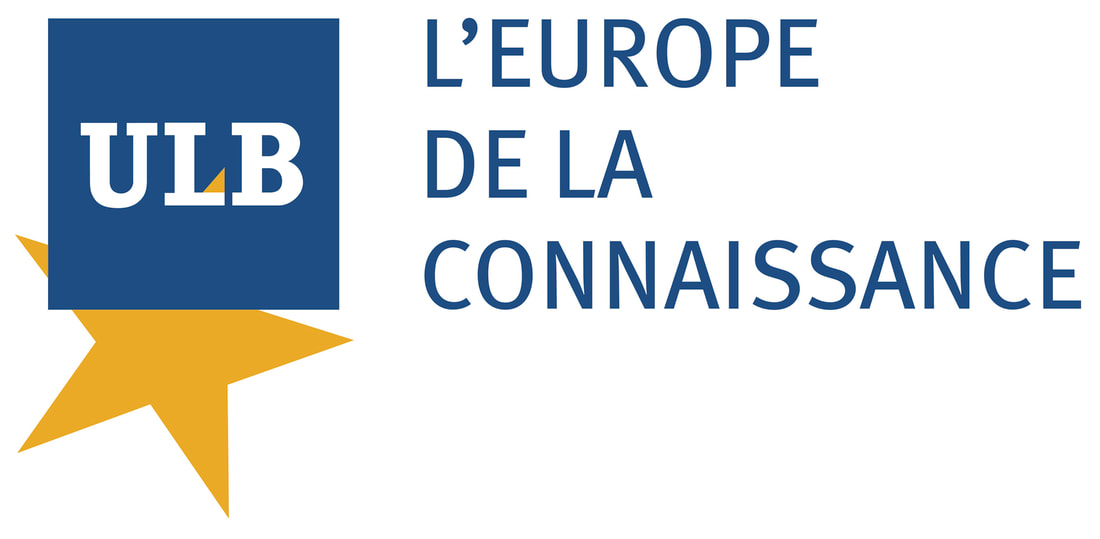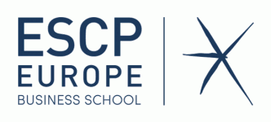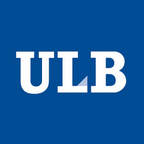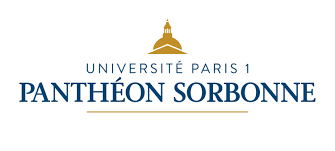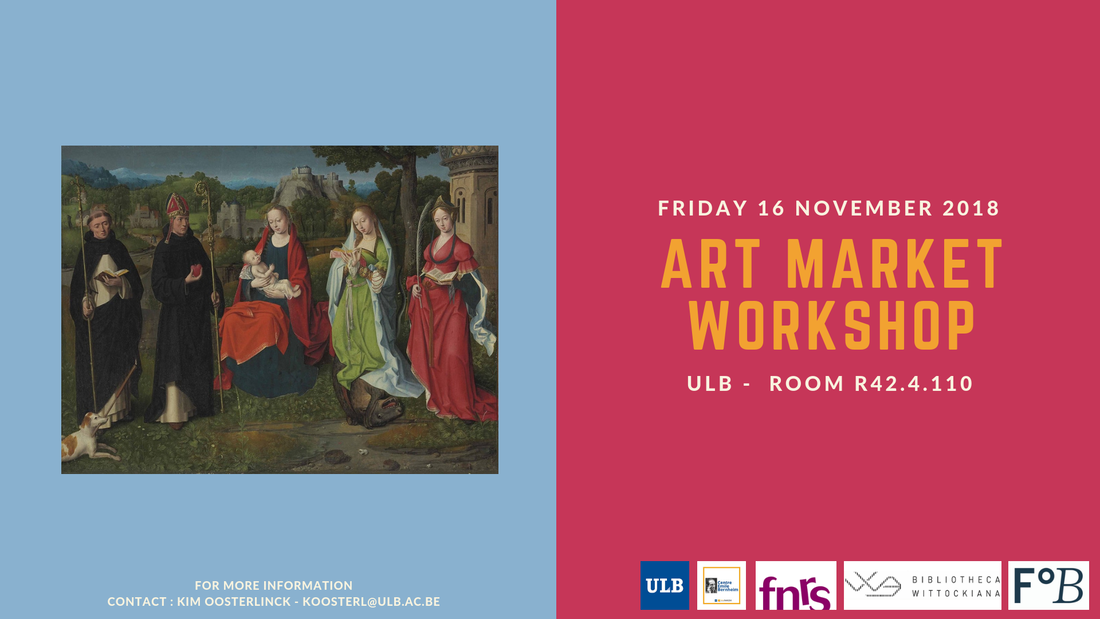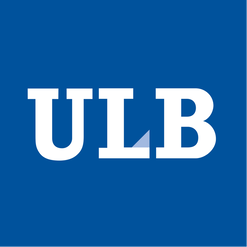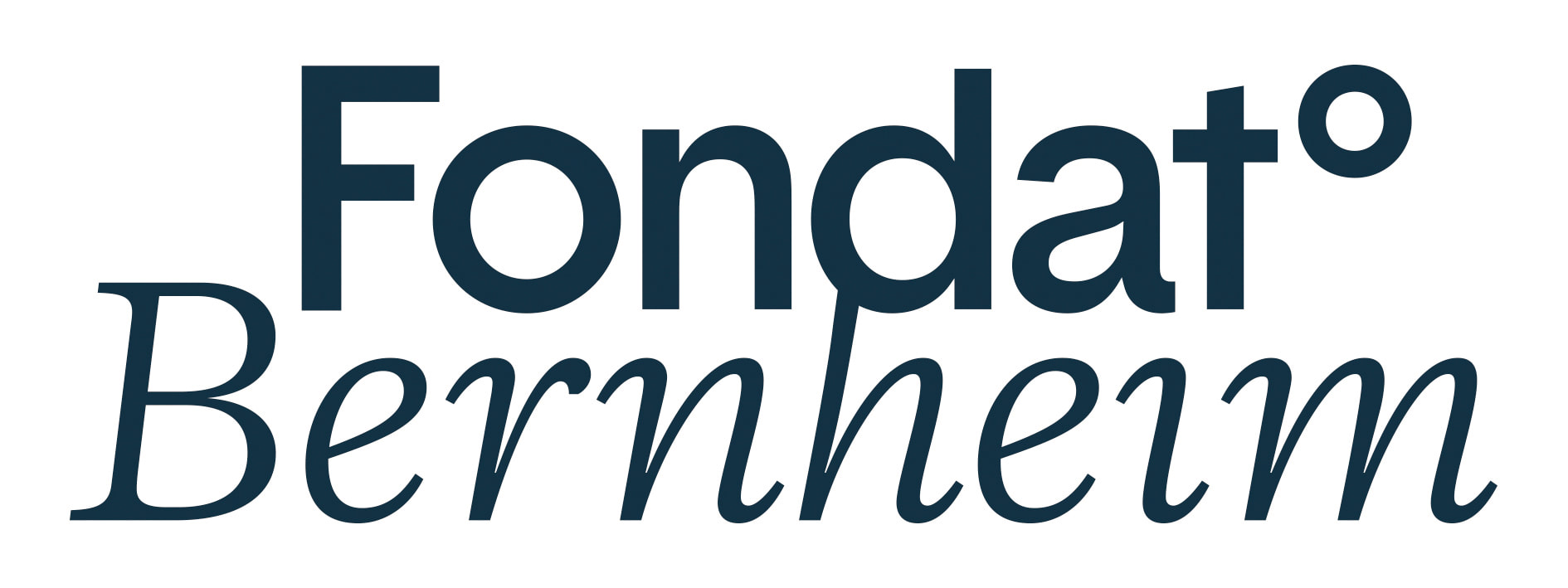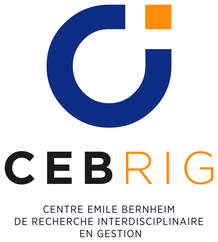WORKSHOP EP@b
economics and politics in brussels
Workshop Purpose
The aim of the Economics & Politics workshop is to bring together scholars from economics and politics interested in interdisciplinary work on political economy. It welcomes theoretical as well as empirical papers by both economists and political scientists.
Papers covering issues in all usual areas of political economy are welcome, such as (but not restricted to) electoral behavior, public policy, public choice, public opinion, etc.
The Economics & Politics workshop is intended for presentation of papers-in-progress that can benefit from discussion. Selection of papers will be based on their quality and to favor coherence of the program. Submissions by graduate students of thesis chapters and recent graduates are welcome.
Workshop Organization
The Economics & Politics workshop is organized each in turn by three institutions: Lille University – LEM, ULB – Centre Emile Bernheim DULBEA, and Sciences Po Paris – LIEPP. So, the workshop is located alternatively in Lille, Bruxelles, and Paris.
The Economics & Politics workshop takes place every year in December, the last week before the christmas break. The workshop begins Monday morning and ends Tuesday afternoon, with a social event monday evening.
There are no parallel sessions. Participation in the workshop is subject to participation in all sessions. To facilitate and improve discussions, time devoted to presentation and discussion will be equivalent. For each paper, at least one discussant will be designated. There is no conference fee.
The workshop is hosted by the local committee members according to the annual place, and the program committee is in charge of the scientific animation.
The program committee is comprised by
To support young researchers (up to two years after PhD), the organizers may cover travel expenditures and accommodation for up to four researchers (max 500 euros each). Please, indicate whether you apply for these scholarships in your submission and where you would travel from.
The aim of the Economics & Politics workshop is to bring together scholars from economics and politics interested in interdisciplinary work on political economy. It welcomes theoretical as well as empirical papers by both economists and political scientists.
Papers covering issues in all usual areas of political economy are welcome, such as (but not restricted to) electoral behavior, public policy, public choice, public opinion, etc.
The Economics & Politics workshop is intended for presentation of papers-in-progress that can benefit from discussion. Selection of papers will be based on their quality and to favor coherence of the program. Submissions by graduate students of thesis chapters and recent graduates are welcome.
Workshop Organization
The Economics & Politics workshop is organized each in turn by three institutions: Lille University – LEM, ULB – Centre Emile Bernheim DULBEA, and Sciences Po Paris – LIEPP. So, the workshop is located alternatively in Lille, Bruxelles, and Paris.
The Economics & Politics workshop takes place every year in December, the last week before the christmas break. The workshop begins Monday morning and ends Tuesday afternoon, with a social event monday evening.
There are no parallel sessions. Participation in the workshop is subject to participation in all sessions. To facilitate and improve discussions, time devoted to presentation and discussion will be equivalent. For each paper, at least one discussant will be designated. There is no conference fee.
The workshop is hosted by the local committee members according to the annual place, and the program committee is in charge of the scientific animation.
The program committee is comprised by
- Quentin David (LEM, Lille University)
- Abel François (LEM, Lille University)
- Emiliano Grossman (CEE and LIEPP, Sciences Po Paris)
- Pierre-Guillaume Méon (Centre Emile Bernheim, Université libre de Bruxelles)
- Sophie Panel (CESICE, Sciences Po Grenoble)
- Ilan Tojerow (DULBEA, Université libre de Bruxelles)
To support young researchers (up to two years after PhD), the organizers may cover travel expenditures and accommodation for up to four researchers (max 500 euros each). Please, indicate whether you apply for these scholarships in your submission and where you would travel from.
TIAMSA Annual Conference –
Towards a Sustainable Art Market?
TIAMSA Annual Conference – Towards a Sustainable Art Market?
Brussels, 30 Jun – 1 Jul 2023
The theme for the 2023 TIAMSA annual conference is ‘Towards a Sustainable Art Market’? The conference, organised in cooperation with the Université libre de Bruxelles, aims to shed light on the question of sustainability (in all its dimensions: social, economic and environmental) in the art market. As all sectors of the economy, the art market must consider the challenges brought by climate change, but also reflect on its actions and on the manner by which artists and artworks have been fostering discussion on sustainability in general.
More info and www.artmarketstudies.org
Program
Séminaire sur les
"Entreprises à mission"
Le 30 juin 2023, à l'ULB, Salle R42.2.107, Av. F.D. Roosevelt 42.
Intervenants
Marek Hudon (Professeur, SBS-EM, ULB)
Coline Serres (Chercheuse Post-Doctorante à l'ULB, Titulaire de la Chaire en Economie Sociale de l'ULB)
Edouard Delruelle (Professeur à l'ULiège)
Kevin Levillain (Professeur, Ecole des Mines, Paris)
Isabelle Ferreras (Professeure, UCLouvain)
Benoit Quitte (Président, Coalition Kaya Ecopreneurs)
Amélie Matton (Directrice, Ecosteryl)
Sybille Mertens (Professeure à l'ULiège)
Intervenants
Marek Hudon (Professeur, SBS-EM, ULB)
Coline Serres (Chercheuse Post-Doctorante à l'ULB, Titulaire de la Chaire en Economie Sociale de l'ULB)
Edouard Delruelle (Professeur à l'ULiège)
Kevin Levillain (Professeur, Ecole des Mines, Paris)
Isabelle Ferreras (Professeure, UCLouvain)
Benoit Quitte (Président, Coalition Kaya Ecopreneurs)
Amélie Matton (Directrice, Ecosteryl)
Sybille Mertens (Professeure à l'ULiège)
diversity in organizations
Register on Eventbrite for the Conference Diversity in Organizations 2023
Also with bit.ly/DIO2023
This event is organized by the CEBRIG, ULB’s research Institute in Management Science, the Bernheim Foundation and the G3 de la Francophonie.
Practitioners join the academic discussion and share their experiences, ideas and thoughts about diversity management in organizations. What diversity dimensions are relevant at the workplace? How do organizations manage diversity and inclusion, and how are they perceived internally and externally? Do various employees truly embrace a culture of inclusion and fully understand what diversity & inclusion means? What organizational processes might unintentionally hamper inclusion? What can your managers do to more effectively manage team diversity and reap its benefits?
These and other questions will be discussed within the context of scientific research and practitioners’ experience. Our aim is cross-fertilization. The program of the conference is rich, combining the academic evidence on organizational diversity (through scientific lectures and poster sessions) with practitioners’ testimonials about their concrete reality of diversity.
This conference will provide the opportunity to network and collaborate with attendees. Our aim is to build bridges, not only between academics, but also between practitioners and academics, as we believe that only together we can bring about change that truly matters.
Download program
Download poster
Download banner (social media)
Download pratical guide
PROGRAM DIO 2023
Also with bit.ly/DIO2023
This event is organized by the CEBRIG, ULB’s research Institute in Management Science, the Bernheim Foundation and the G3 de la Francophonie.
Practitioners join the academic discussion and share their experiences, ideas and thoughts about diversity management in organizations. What diversity dimensions are relevant at the workplace? How do organizations manage diversity and inclusion, and how are they perceived internally and externally? Do various employees truly embrace a culture of inclusion and fully understand what diversity & inclusion means? What organizational processes might unintentionally hamper inclusion? What can your managers do to more effectively manage team diversity and reap its benefits?
These and other questions will be discussed within the context of scientific research and practitioners’ experience. Our aim is cross-fertilization. The program of the conference is rich, combining the academic evidence on organizational diversity (through scientific lectures and poster sessions) with practitioners’ testimonials about their concrete reality of diversity.
This conference will provide the opportunity to network and collaborate with attendees. Our aim is to build bridges, not only between academics, but also between practitioners and academics, as we believe that only together we can bring about change that truly matters.
Download program
Download poster
Download banner (social media)
Download pratical guide
PROGRAM DIO 2023
|
DAY 1
12:00-14:00 Opening and Lunch (Cafétaria EXED) 14:00-15:30 Keynote : Tessa Dover, Portland State University Free Event - Register on Eventbrite ! (5.503) 15:30-16:00 Coffee Break (Atrium) 16:00-17:20 Academic Session 1 (2.110) 17:30-18:30 Blitz Session 1 (2.110) 18:30-20:00 Drinks and Discussion (Atrium) |
DAY 2
9:00-9:30 Breakfast (Atrium) 09:30-11:00 Practitioners Session (2.110) 11:00-11:30 Coffee Break (Atrium) 11:30-13:00 Round Table 1 What leaders (should) do to support DEI policies ? animated by Klea Faniko, Université de Genève (2.110/3.103) 13:00-14:30 Lunch & Poster Session 1 (Atrium) 14:30-16:00 Academic Session 2 (2.110) 16:00-16:30 Coffee Break (Atrium) 17:00-18:30 Keynote : Tania Saba, Université de Montreal (5.503) Free Event - Register on Eventbrite ! 18:30-20:00 Closure and Discussion (Atrium) |
DAY 3
9:00-9:30 Breakfast (Atrium) 09:30-11:00 Blitz Session 2 - 8 blitz (2.110) 11:00-11:30 Coffee Break (Atrium) 11:30-13:00 Round Table 2 Why and how to measure DEI policies impact ? animated by Sara Aguirre, Université libre de Bruxelles (2.110/3.103) 13:00-14:30 Lunch & Poster Session 2 (Atrium) 14:30-16:00 End of Conference |
SPECIAL EVENTs
TESSA DOVER
"Psychological & Behavioral Impacts of Organizational DEI Initiatives : Moving from Stagnation & Backlash to Justice & Inclusion?"
Register on Eventbrite for the Tessa Dover event
Also with bit.ly/tessadover
I review my empirical work exploring the unintended psychological and behavioral consequences of organizational DEI initiatives. I then propose a framework of intergroup responsiveness that may prove useful for DEI scholars and practitioners seeking to minimise those unintended consequences.
Tessa Dover, professor of Applied Social Psychology at Portland State University will address "the Psychological & Behavioral Impacts of Organizational DEI Initiatives : Moving from Stagnation & Backlash to Justice & Inclusion?" at this conference.
This conference is financed by ULB and the Solvay Brussels School of Economics and Management celebrating its 120 years.
Download poster
Download banner (social media)
Also with bit.ly/tessadover
I review my empirical work exploring the unintended psychological and behavioral consequences of organizational DEI initiatives. I then propose a framework of intergroup responsiveness that may prove useful for DEI scholars and practitioners seeking to minimise those unintended consequences.
Tessa Dover, professor of Applied Social Psychology at Portland State University will address "the Psychological & Behavioral Impacts of Organizational DEI Initiatives : Moving from Stagnation & Backlash to Justice & Inclusion?" at this conference.
This conference is financed by ULB and the Solvay Brussels School of Economics and Management celebrating its 120 years.
Download poster
Download banner (social media)
TANIA SABA
"Progress, SETBACKS AND FUTURE CHALLENGES
IN DIVERSITY MANAGEMENT"
Register on Eventbrite for the Tania Saba event
Also with bit.ly/taniasaba
While workplaces claim to be paying more attention to diversity and inclusion, inequities persist.
This conference will explore the breakthroughs, but also the transformations and challenges of equity, diversity, and inclusion in organizations. Tania Saba, professor of Human Ressources and Management at University of Montreal will address the innovation and learning potential of diverse groups at this conference.
This conference is financed by ULB, the Bernheim Foundation and the G3 de la Francophonie.
Download poster
Download banner (social media)
Also with bit.ly/taniasaba
While workplaces claim to be paying more attention to diversity and inclusion, inequities persist.
This conference will explore the breakthroughs, but also the transformations and challenges of equity, diversity, and inclusion in organizations. Tania Saba, professor of Human Ressources and Management at University of Montreal will address the innovation and learning potential of diverse groups at this conference.
This conference is financed by ULB, the Bernheim Foundation and the G3 de la Francophonie.
Download poster
Download banner (social media)
CYCLE DE CONFERENCE
ENVIRONNEMENT ET FINANCE
Réactions politiques
« Environnement et Finance »
economics and politics workshop
The 5th Economics and Politics Workshop will be held in Lille 12-13 December. This year, it is organized by LEM (University of Lille), with the support of CEBRIG, Dulbea (ULB) and LIEPP (Sciences Po Paris).
The workshop’s aim is to bring together scholars from economics and politics interested in interdisciplinary work on public policy, political economy and public choice. We welcome theoretical as well as empirical papers by both economists and political scientists. The workshop is intended for the presentation of work-in-progress that can benefit from discussion. The selection of papers will be based on their quality and the overall coherence of the program.
There are no parallel sessions. Participation in the workshop is subject to participation in all sessions. To facilitate and improve discussions, time devoted to presentation and discussion will be equivalent. For each paper, at least one discussant will be designated. There is no conference fee. Young scholars can apply for a scholarship. To support young researchers (up to two years after PhD), the organizers may cover travel expenditures and accommodation for up to four researchers (max 500 euros each). Please, indicate whether you apply for these scholarships in your submission and where you would travel from.
Those interested in discussing a paper or willing to take part to the event should contact the local organizers: [email protected]
The workshop’s aim is to bring together scholars from economics and politics interested in interdisciplinary work on public policy, political economy and public choice. We welcome theoretical as well as empirical papers by both economists and political scientists. The workshop is intended for the presentation of work-in-progress that can benefit from discussion. The selection of papers will be based on their quality and the overall coherence of the program.
There are no parallel sessions. Participation in the workshop is subject to participation in all sessions. To facilitate and improve discussions, time devoted to presentation and discussion will be equivalent. For each paper, at least one discussant will be designated. There is no conference fee. Young scholars can apply for a scholarship. To support young researchers (up to two years after PhD), the organizers may cover travel expenditures and accommodation for up to four researchers (max 500 euros each). Please, indicate whether you apply for these scholarships in your submission and where you would travel from.
Those interested in discussing a paper or willing to take part to the event should contact the local organizers: [email protected]
L’intégration des immigrés, anciens et nouveaux, dans notre économie et notre société reste un défi majeur. Le projet IMMILAB, en cours depuis 2017, s’est penché sur les obstacles et les solutions à apporter.
Le projet, financé par BELSPO dans le cadre du programme BRAIN, a réuni trois équipes de recherche expérimentées qui ont accumulé une multitude de nouvelles connaissances au cours des 5 dernières années.
Le groupe de recherche IMMILAB souhaite vous inviter à la conférence finale du projet où nous présenterons nos résultats de recherche. Nous poserons également la question suivante: quelles sont les implications politiques? C’est la raison pour laquelle nous interagirons avec des experts et des décideurs politiques.
LIEU DE LA CONFÉRENCE: Résidence Palace - Rue de la Loi 155 – Bruxelles
INSCRIVEZ-VOUS GRATUITEMENT - De préférence avant le 25 Mai
INSCRIVEZ-VOUS: forms.uantwerpen.be/nl/facsw/immilab-slotconferentie/
9h30
Inscription & café
10h00
Bienvenue par Aziz Naji – Coordinateur des programmes de recherche BELSPO
Introduction au projet BELSPO IMMILAB – Ive Marx – Université d’Anvers
Président du jour – Koen Dewulf – MYRIA
Chacun(e) s’exprime dans la langue de son choix, le français ou le néerlandais.
10h30
· La migration de la main-d’œuvre nuit-elle à l’intégration économique des personnes issues de l’immigration?
Le marché du travail belge présente un paradoxe majeur. D'une part, il existe une importante réserve de main-d'œuvre d'inactifs, dont beaucoup sont des immigrés. D'autre part, les employeurs connaissent une énorme pénurie de main-d'œuvre et font massivement appel aux travailleurs immigrés. Comment peut-on expliquer cela? Qu'est-ce que cela signifie en termes politiques?
Dries Lens, Ninke Mussche & Ive Marx – Centre de politique sociale – Université d’Anvers
Discussants: Tom Bevers (SPF Emploi) & Thomas Wauters (Accent Jobs)
12h00
· LUNCH
13h00
· Trajectoires travail-famille: comparaison des femmes issues de l’immigration et des femmes natives – quelles sont les implications politiques?
L’écart d’emploi entre les femmes issues de l’immigration et celles qui n’en sont pas est plus important chez les femmes ayant des enfants que chez les femmes sans enfant. La parentalité a-t-elle un impact plus fort sur les trajectoires du marché du travail des femmes issues de l’immigration? Y a-t-il des différences dans l’utilisation du congé parental et de la garde formelle des enfants selon l’origine migratoire? Quelles sont les explications possibles à cela et qu’est-ce que cela signifie en termes politiques?
Julie Maes, Jonas Wood, Naomi Biegel & Karel Neels – Centre de Démographie, Famille et Santé – Université d’Anvers
Discussants: Joris Ghysels (VDAB), Gerlinde Doyen (Agentschap Binnenlands Bestuur- Vlaanderen)
14h30
Café
14h45
Valentine Fays, Valentine Jacobs, Benoît Mahy, François Rycx & Mélanie Volral, Université libre de Bruxelles (CEBRIG/DULBEA)
& Université de Mons (Soci&ter)
Discussants: Dieter Verhaest (KUL), Céline Piton (NBB)
16h15
Clôture par le secrétaire d’État Sammy Mahdi
Le projet, financé par BELSPO dans le cadre du programme BRAIN, a réuni trois équipes de recherche expérimentées qui ont accumulé une multitude de nouvelles connaissances au cours des 5 dernières années.
Le groupe de recherche IMMILAB souhaite vous inviter à la conférence finale du projet où nous présenterons nos résultats de recherche. Nous poserons également la question suivante: quelles sont les implications politiques? C’est la raison pour laquelle nous interagirons avec des experts et des décideurs politiques.
LIEU DE LA CONFÉRENCE: Résidence Palace - Rue de la Loi 155 – Bruxelles
INSCRIVEZ-VOUS GRATUITEMENT - De préférence avant le 25 Mai
INSCRIVEZ-VOUS: forms.uantwerpen.be/nl/facsw/immilab-slotconferentie/
9h30
Inscription & café
10h00
Bienvenue par Aziz Naji – Coordinateur des programmes de recherche BELSPO
Introduction au projet BELSPO IMMILAB – Ive Marx – Université d’Anvers
Président du jour – Koen Dewulf – MYRIA
Chacun(e) s’exprime dans la langue de son choix, le français ou le néerlandais.
10h30
· La migration de la main-d’œuvre nuit-elle à l’intégration économique des personnes issues de l’immigration?
Le marché du travail belge présente un paradoxe majeur. D'une part, il existe une importante réserve de main-d'œuvre d'inactifs, dont beaucoup sont des immigrés. D'autre part, les employeurs connaissent une énorme pénurie de main-d'œuvre et font massivement appel aux travailleurs immigrés. Comment peut-on expliquer cela? Qu'est-ce que cela signifie en termes politiques?
Dries Lens, Ninke Mussche & Ive Marx – Centre de politique sociale – Université d’Anvers
Discussants: Tom Bevers (SPF Emploi) & Thomas Wauters (Accent Jobs)
12h00
· LUNCH
13h00
· Trajectoires travail-famille: comparaison des femmes issues de l’immigration et des femmes natives – quelles sont les implications politiques?
L’écart d’emploi entre les femmes issues de l’immigration et celles qui n’en sont pas est plus important chez les femmes ayant des enfants que chez les femmes sans enfant. La parentalité a-t-elle un impact plus fort sur les trajectoires du marché du travail des femmes issues de l’immigration? Y a-t-il des différences dans l’utilisation du congé parental et de la garde formelle des enfants selon l’origine migratoire? Quelles sont les explications possibles à cela et qu’est-ce que cela signifie en termes politiques?
Julie Maes, Jonas Wood, Naomi Biegel & Karel Neels – Centre de Démographie, Famille et Santé – Université d’Anvers
Discussants: Joris Ghysels (VDAB), Gerlinde Doyen (Agentschap Binnenlands Bestuur- Vlaanderen)
14h30
Café
14h45
- Les conditions d’emploi des travailleurs sont-elles déterminées par leur origine nationale ? Mesures, explications et remèdes
Valentine Fays, Valentine Jacobs, Benoît Mahy, François Rycx & Mélanie Volral, Université libre de Bruxelles (CEBRIG/DULBEA)
& Université de Mons (Soci&ter)
Discussants: Dieter Verhaest (KUL), Céline Piton (NBB)
16h15
Clôture par le secrétaire d’État Sammy Mahdi
17e Journée de collaboration scientifique
ENTRE LES ECOLES DOCTORALES EN GESTION DE L’UNIVERSITÉ PARIS I-PANTHÉON-SORBONNE ET DE L’UNIVERSITÉ LIBRE DE BRUXELLES
La dix-septième Journée de collaboration scientifique entre les Ecoles Doctorale en Gestion de l’Université Paris I-Panthéon-Sorbonne et de l’Université libre de Bruxelles aura lieu le mardi 17 mai 2022.
Cette journée se déroulera à partir de 10h00, à l’Université libre de Bruxelles (ULB), Solvay Brussels School of Economics and Mangement, auditoire R42.2.107.
Vous trouverez, ci-joint, le programme détaillé de cette journée.
Merci de me confirmer votre participation à l’adresse email suivante : [email protected] pour le 9 mai au plus tard.
Cette journée se déroulera à partir de 10h00, à l’Université libre de Bruxelles (ULB), Solvay Brussels School of Economics and Mangement, auditoire R42.2.107.
Vous trouverez, ci-joint, le programme détaillé de cette journée.
Merci de me confirmer votre participation à l’adresse email suivante : [email protected] pour le 9 mai au plus tard.
Sotheby's : Art and War: Looting, Provenance and Restitution
May 11th, 2022
Sotheby’s Belgium and Solvay Brussels School of Economics & Management of the Université libre de Bruxelles will associate to organize a series of meetings about the art market and its different sectors.
These will be animated by Virginie Devillez (expert in Impressionist, Modern and Contemporary Art at Sotheby’s) and Kim Oosterlinck (professor in Finance specialized in the art market), with the idea to associate the actors of the art market and researchers.
The question of provenance, the capacity to retrace the history of a work of art, plays a central role in the art market. A prestigious provenance can influence positively the price of a work of art, while a dubious provenance can limit the ability of selling this work. Studies about provenance have undergone a considerable development in Germany, particularly looted art under the Nazi regime.
Meike Hopp, professor at the TU Berlin and expert of the art market under the Nazi regime, will draw up the advances of the researches from the past years about this subject.
Aurélie Vandevoorde will present the auction houses’ point of view regarding issues about provenance.
Finally, the Secretary of State Thomas Dermine will talk about the restitution policy in Belgium.
Practical Details
Location : Université libre de Bruxelles (Local R42. 5.103, jonction Avenues Franklin Roosevelt & Jeanne, Ixelles)
Date : Wednesday 11th May from 18.30 to 20.00
Infos + registration (free but mandatory): [email protected] | More information
Sotheby’s Belgium and Solvay Brussels School of Economics & Management of the Université libre de Bruxelles will associate to organize a series of meetings about the art market and its different sectors.
These will be animated by Virginie Devillez (expert in Impressionist, Modern and Contemporary Art at Sotheby’s) and Kim Oosterlinck (professor in Finance specialized in the art market), with the idea to associate the actors of the art market and researchers.
The question of provenance, the capacity to retrace the history of a work of art, plays a central role in the art market. A prestigious provenance can influence positively the price of a work of art, while a dubious provenance can limit the ability of selling this work. Studies about provenance have undergone a considerable development in Germany, particularly looted art under the Nazi regime.
Meike Hopp, professor at the TU Berlin and expert of the art market under the Nazi regime, will draw up the advances of the researches from the past years about this subject.
Aurélie Vandevoorde will present the auction houses’ point of view regarding issues about provenance.
Finally, the Secretary of State Thomas Dermine will talk about the restitution policy in Belgium.
Practical Details
Location : Université libre de Bruxelles (Local R42. 5.103, jonction Avenues Franklin Roosevelt & Jeanne, Ixelles)
Date : Wednesday 11th May from 18.30 to 20.00
Infos + registration (free but mandatory): [email protected] | More information
CONFERENCE ECONOMIE ET DURABILITE
Quand? Cela a lieu le mardi 26 avril à 18h au Kinograph (227 avenue de la Couronne, USQUARE, 1050 Bruxelles), juste à côté de la gare d’Etterbeek.
Quoi? Conférence unique rassemblant des enseignants, étudiants, assistants d'HELMO, HE2b, ICHEC UCLouvain, ULG, UMONS, UNAMUR, et ULB, partenaires d’un projet ARES-CDD.
La conférence comportera plusieurs parties:
- Exposé d’Eva Sadoun (entrepreneure française de 31 ans, Co-fondatrice de Lita.co et du mouvement Impact France, auteur du récent livre « Une économie nous »)) suivi d’une séance de questions / réponses.
- Deux panels avec des étudiants qui aborderont différents aspects du projets, l’impact de la Fresque du climat, comment les vidéos pédagogiques peuvent permettre d’analyser des événements d’actualité comme l’élargissement de l’aéroport de Liège, les Community Land Trust, le rôle de l'économie sociale dans la transition)
- Présentation des trois vidéos qui ont été développées (communs, théorique du Donut, théories de la transition)
L’événement sera animé par François Mathieu, journaliste à La Libre.
La conférence sera suivi d’un moment de convivialité avec Food Truck, Boissons.
Inscriptions ici
Quoi? Conférence unique rassemblant des enseignants, étudiants, assistants d'HELMO, HE2b, ICHEC UCLouvain, ULG, UMONS, UNAMUR, et ULB, partenaires d’un projet ARES-CDD.
La conférence comportera plusieurs parties:
- Exposé d’Eva Sadoun (entrepreneure française de 31 ans, Co-fondatrice de Lita.co et du mouvement Impact France, auteur du récent livre « Une économie nous »)) suivi d’une séance de questions / réponses.
- Deux panels avec des étudiants qui aborderont différents aspects du projets, l’impact de la Fresque du climat, comment les vidéos pédagogiques peuvent permettre d’analyser des événements d’actualité comme l’élargissement de l’aéroport de Liège, les Community Land Trust, le rôle de l'économie sociale dans la transition)
- Présentation des trois vidéos qui ont été développées (communs, théorique du Donut, théories de la transition)
L’événement sera animé par François Mathieu, journaliste à La Libre.
La conférence sera suivi d’un moment de convivialité avec Food Truck, Boissons.
Inscriptions ici
DULBEA/CEBRIG WORKSHOP ON THE POLITICAL ECONOMY OF DEMONSTRATIONS
ECONOMICS AND POLITICS IN BRUSSELS
The workshop will take place on Friday, April 22th in room R42.2.113 at the Solvay Brussels School of Economics and Management (ULB Solbosch Campus, Av. F.D. Roosevelt 42, B-1050, Brussels).
The workshop will start at 14:00 and will be followed by a drink at 17.30.
For more details on the workshop and the presenters, please find the program [here].
Participation is free of charge but registration is compulsory and not later than April 19th at the following link: [here].
The workshop will start at 14:00 and will be followed by a drink at 17.30.
For more details on the workshop and the presenters, please find the program [here].
Participation is free of charge but registration is compulsory and not later than April 19th at the following link: [here].
Workshop EP@B
ECONOMICS AND POLITICS IN BRUSSELS
Preliminary Program
Day 1 - december 169:30 - 10:00
Welcome Coffee / Tea 10:00 - 12:00 Session 1 Auditoire R42.2.110 Toke Aidt, Jean Lacroix, and Pierre-Guillaume Méon – “Democratic purges in 1945 France: Was it all about separating the wheat from the chaff?” Discussion openers*: Emiliano Grossman, Tommaso Giommoni Stefano Falcone and Michele Rosenberg – “Technological change, organizational capacity and conflict: Land occupations in Brazil” Discussion openers: Cait Brown, Sophie Panel Emiliano Grossman – “Distance, dissatisfaction and decentralisation: Does geographical proximity to national political institutions shape satisfaction with democracy?” Discussion openers: Vincent Mabillard, Cait Brown Evan Wigton-Jones – “Droughts, conflict, and local governance in pre-industrial Europe” Discussion openers: David Raymaekers, Stefano Falcone 12:00-13:00 Lunch 13:00 - 14:00 Session 2 Auditoire R42.2.110 João Rafael Cunha – “Making of financial regulation” Discussion openers: Benjamin Monnery, Francis Osei-Tutu Nicolas Lagios, Pierre-Guillaume Méon and Ilan Tojerow – “Does it pay off to demonstrate against the far right?” Discussion openers: Laura Duthilleul, Nanna Lauritz Schönhage Gianmarco Daniele, Tommaso Giommoni, and Tommaso Orlando – “Corruption under fiscal rules” Discussion openers: Bruno Carvalho, Quentin David 14:00 – 15:00 Session 3 Auditoire R42.2.110 Gianmarco Daniele, Tommaso Giommoni, and Tommaso Orlando – “Corruption under fiscal rules” Discussion openers: Bruno Carvalho, Quentin David Nikolaj Broberg, Vincent Pons and Clémence Tricaud – “Effect of Campaign Financing Rules on Candidates' Selection and Election Outcomes: Evidence from France” Discussion openers: Ilan Tojerow, Pierre-Guillaume Méon 15:00 - 15:30 Coffee Break 15:30 – 17:00 Session 4 Auditoire R42.2.110 Nadiya Ukrayinchuk and Hubert Jayet – “Immigration issue in French presidential election choice” Discussion openers: Bruno Carvalho, Laura Duthilleul Benny Geys and Nanna Lauritz Schönhage – “Party cues and incumbent assessments under multilevel governance” Discussion openers: João Rafael Cunha, Nadiya Ukrayinchuk Benjamin Monnery and Eric Phélippeau – “Legislators as managers: Evidence from parliamentary staff in France” Discussion openers: Jean Lacroix, Nadiya Ukrayinchuk 17:15 – 18:15 Invited lecture Auditoire R42.2.110 Andreas Madestam (Stockholm University) "State repression, exit, and voice: Living in the shadow of Cambodia’s killing fields” 19:30
Social Dinner |
Vertical Divider
|
Day 2 - december 179:00 - 09:30
Coffee / Tea 9:30 - 11:00 Session 5 Auditoire R42.2.110 Gianmarco Daniele, Amedeo Piolatto, and Willem Sas – “Does the winner take it all? Redistributive policies and political extremism” Discussion openers: Michael Dorsch, Tommaso Giommoni Etienne Lepers – “Manipulating credit: How political cycles drive credit booms” Discussion openers: Israel Garcia, Beni Kouevi-Gath Cristina Corduneanu-Huci, Michael T. Dorsch, and Paul Maarek – “Learning to constrain: Political competition, polarization, and randomized controlled trials” Discussion openers: Quentin David, Willem Sas 11:00-11:30 Coffee Break 11:30 - 12:30 Session 6 Auditoire R42.2.110 Caitlin Brown, Garance Genicot, and Nishtha Kochhar – “Political reservations as term-limits: Evidence from India” Discussion openers: Evan Jones, Maqsood Aslam Francis Osei-Tutu and Laurent Weill – “More democracy, more access to credit?” Discussion openers: João Rafael Cunha, Hira Iqbal 12:30 - 13:30 Lunch 13:30 - 15:00 Session 7 Auditoire R42.2.110 Maqsood Aslam and Laura Duthilleul – “Education: a shield to dictatorship? Evidence from Pakistan” Discussion openers: Evan Jones, Sophie Panel Abel François and Morgan Le Corre Juratic – “Number of candidates and electoral turnout: how many is optimal?” Discussion openers: Kim Oosterlinck, Nikolaj Broberg Israel García and Bernd Hayo – “Political budget cycles revisited: Testing the signalling process” Discussion openers: Etienne Lepers, Morgan Le Corre Juratic 15:00-15:30 Coffee and Farewell ---------------------------------- *Discussion openers open the discussion and can only use 2 slides if any. Discussion openers have a limit of 2 minutes. |
DIVERSITY IN ORGANIZATIONS
14-15 NOVEMBER 2019
PDF version here
La diversité est aujourd’hui la plus grande richesse de la globalisation et de la société multiculturelle.
Néanmoins les défis de la diversité restent nombreux autant au niveau individuel qu’au niveau groupal et sociétal.
Katherine Phillips, professeure d’Éthique et Leadership à Columbia Business School, lauréate en 2019 du Mentorship Award de l’Academy of Management, va aborder lors de cette conférence le potentiel d’innovation et d’apprentissage des groupes diverses. A travers des multiples recherches et études de cas, Katherine Phillips nous convaincra que la gestion des diversités est une source majeure de progrès, mais également un levier important pour combattre les inégalités et l’intolérance.
Cette conférence est financée par la Chaire Internationale, ULB et par la Fondation Bernheim.
Dans le cadre de la Conférence Diversity in Organizations
This event is co-organized by the Centre Emile Bernheim, ULB’s research Institute in Management Science and the HR Circle Solvay.
What diversity dimensions are relevant at the workplace? How do organizations manage diversity and inclusion, and how are they perceived internally and externally? Do various employees truly embrace a culture of inclusion and fully understand what diversity & inclusion means? What organizational processes might unintentionally hamper inclusion? What can your managers do to more effectively manage team diversity and reap its benefits?
These and other questions will be discussed within the context of scientific research and practitioners’ experience. Our aim is cross-fertilization. The program of the conference is rich, combining the academic evidence on organizational diversity (through scientific lectures and poster sessions) with practitioners’ testimonials about their concrete reality of diversity.
In addition, if you want to learn how to concretely set up a Diversity and Inclusion Action Plan, please join our workshop, animated by experienced diversity experts.
This conference will provide the opportunity to network and collaborate with attendees. Our aim is to build bridges, not only between academics, but also between practitioners and academics, as we believe that only together we can bring about change that truly matters.
This two-day conference will take place on November 14 & 15 2019 at Brussels School of Economics and Management.
Néanmoins les défis de la diversité restent nombreux autant au niveau individuel qu’au niveau groupal et sociétal.
Katherine Phillips, professeure d’Éthique et Leadership à Columbia Business School, lauréate en 2019 du Mentorship Award de l’Academy of Management, va aborder lors de cette conférence le potentiel d’innovation et d’apprentissage des groupes diverses. A travers des multiples recherches et études de cas, Katherine Phillips nous convaincra que la gestion des diversités est une source majeure de progrès, mais également un levier important pour combattre les inégalités et l’intolérance.
Cette conférence est financée par la Chaire Internationale, ULB et par la Fondation Bernheim.
Dans le cadre de la Conférence Diversity in Organizations
This event is co-organized by the Centre Emile Bernheim, ULB’s research Institute in Management Science and the HR Circle Solvay.
What diversity dimensions are relevant at the workplace? How do organizations manage diversity and inclusion, and how are they perceived internally and externally? Do various employees truly embrace a culture of inclusion and fully understand what diversity & inclusion means? What organizational processes might unintentionally hamper inclusion? What can your managers do to more effectively manage team diversity and reap its benefits?
These and other questions will be discussed within the context of scientific research and practitioners’ experience. Our aim is cross-fertilization. The program of the conference is rich, combining the academic evidence on organizational diversity (through scientific lectures and poster sessions) with practitioners’ testimonials about their concrete reality of diversity.
In addition, if you want to learn how to concretely set up a Diversity and Inclusion Action Plan, please join our workshop, animated by experienced diversity experts.
This conference will provide the opportunity to network and collaborate with attendees. Our aim is to build bridges, not only between academics, but also between practitioners and academics, as we believe that only together we can bring about change that truly matters.
This two-day conference will take place on November 14 & 15 2019 at Brussels School of Economics and Management.
Financial Regulation and Stability
after Brexit
In presence of
Didier Reynders, Belgian Deputy Prime Minister and Minister of Foreign Affairs and European Affairs
Michel Barnier, European Union Chief Negotiator
The Brexit negotiations are in a difficult phase and it is hard to predict what relationship the UK will have with the EU in the future. The UK is most likely to exit the Single Market on 29 March 2019 or 31 December 2020. Financial institutions based in the UK will thus lose their passporting rights to the European market. This conference will examine some of the most important issues raised by this profound regime change.
4 pm to 4:30 pm - Opening Address
Didier Reynders, Belgian Deputy Prime Minister and Minister of Foreign Affairs and European Affairs
announced by Yvon Englert, Rector of the Université Libre de Bruxelles (ULB)
Panels introduced by:
Kim Oosterlinck, Professor of Finance, ULB Solvay Brussels School and CEPR
Ariane Szafarz, Professor of Finance, ULB, Solvay Brussels School
Didier Reynders, Belgian Deputy Prime Minister and Minister of Foreign Affairs and European Affairs
announced by Yvon Englert, Rector of the Université Libre de Bruxelles (ULB)
Panels introduced by:
Kim Oosterlinck, Professor of Finance, ULB Solvay Brussels School and CEPR
Ariane Szafarz, Professor of Finance, ULB, Solvay Brussels School
4:30 pm to 5:15 pm
Panel 1: “Equivalence vs. mutual recognition and trade in services: the consequences of Brexit for the European financial sector”
Speakers:
Marie-Anne Barbat-Layani, CEO of the French Banking Federation
Baroness Kishwer Falkner of Margravine, Chair EU Financial Affairs Sub-Committee, House of Lords
John Kay, Oxford University and The Financial Times
Stéphane Puel, Lawyer at the Paris Bar, Managing Partner, Gide Loyrette Nouel
Moderator: Alain Pietrancosta, Professor - Sorbonne Law School, LabEx ReFi, Legal High Advisory Committee for the French Marketplace
5:15 pm to 5:45 pm - Coffee break
Panel 1: “Equivalence vs. mutual recognition and trade in services: the consequences of Brexit for the European financial sector”
Speakers:
Marie-Anne Barbat-Layani, CEO of the French Banking Federation
Baroness Kishwer Falkner of Margravine, Chair EU Financial Affairs Sub-Committee, House of Lords
John Kay, Oxford University and The Financial Times
Stéphane Puel, Lawyer at the Paris Bar, Managing Partner, Gide Loyrette Nouel
Moderator: Alain Pietrancosta, Professor - Sorbonne Law School, LabEx ReFi, Legal High Advisory Committee for the French Marketplace
5:15 pm to 5:45 pm - Coffee break
5:45 pm to 6:30 pm
Panel 2: “Euro fixed-income markets after Brexit: liquidity, supervision and monetary policy”
Speakers:
Baroness Kishwer Falkner of Margravine, Chair EU Financial Affairs Sub-Committee, House of Lords
Hugues Pirotte, Professor of Finance, ULB Solvay Brussels School
Sébastien Raspiller, Assistant Secretary Financial Sector Department, Directorate General of the Treasury [France]
Georges Ugeux, President Galileo Global Advisors
Moderator: Jean-Paul Laurent, Professor, Université Paris 1 Panthéon-Sorbonne, LabEx ReFi
Panel 2: “Euro fixed-income markets after Brexit: liquidity, supervision and monetary policy”
Speakers:
Baroness Kishwer Falkner of Margravine, Chair EU Financial Affairs Sub-Committee, House of Lords
Hugues Pirotte, Professor of Finance, ULB Solvay Brussels School
Sébastien Raspiller, Assistant Secretary Financial Sector Department, Directorate General of the Treasury [France]
Georges Ugeux, President Galileo Global Advisors
Moderator: Jean-Paul Laurent, Professor, Université Paris 1 Panthéon-Sorbonne, LabEx ReFi
6:30 pm to 7:30 pm
Michel Barnier, European Union Chief Negotiator - Task Force for the Preparation and Conduct of the Negotiations with the United Kingdom under Article 50 TEU
announced by Christian de Boissieu, Professor of economics, LabEx ReFi, Université Paris I Panthéon-Sorbonne, Board member of the Autorité des Marchés Financiers
7:30 pm - Cocktail
Michel Barnier, European Union Chief Negotiator - Task Force for the Preparation and Conduct of the Negotiations with the United Kingdom under Article 50 TEU
announced by Christian de Boissieu, Professor of economics, LabEx ReFi, Université Paris I Panthéon-Sorbonne, Board member of the Autorité des Marchés Financiers
7:30 pm - Cocktail
Art Market Workshop
9:00-9:30 Welcome Coffee
9:30-11:00 Session 1
9:30-11:00 Session 1
- Anne-Sophie Radermecker (Université libre de Bruxelles), “Buying Artworks Without Names: An Insight into the Market for ‘Anonymous’ Flemish Paintings”
- Sophie Raux (Université Lyon 2), “Arousing the Desire to Buy Paintings. The Situation in Early 18th-century Paris”
- Filip Vermeylen (Erasmus University Rotterdam), “The professionalization of the Art Trade in the Early Nineteenth Century: Exploring the Business Model of Christie’s Auction House” (jointly with Sandra van Ginhoven)
11:00-11:15 Coffee Break
11:15-12:15 Session 2
12:15-13:30 Lunch
13:30-15:00 Session 3
15:00-15:15 Coffee Break
15:15-16:45 Session 4
17:30 Visit of the Bibliotheca Wittockiana
11:15-12:15 Session 2
- Diana Greenwald (National Gallery), “Portraits and the Salon” (jointly with Kim Oosterlinck)
- Kathryn Graddy (Brandeis University), “Immigrant Artists: Enrichment or Displacement?” (jointly with Karol Jan Borowiecki)
12:15-13:30 Lunch
13:30-15:00 Session 3
- Amy Whitaker (New York University), “Blockchain, Fractional Ownership, and the Future of Creative Work” (jointly with Roman Kräussl)
- Jeroen Euwe (Erasmus University Rotterdam), “The German Art Market During WWII” (jointly with Christian Huemer and Kim Oosterlinck)
- Yuexin Li (Tilburg University), “Trust in Art Markets” (jointly with M. Ma and L. Renneboog)
15:00-15:15 Coffee Break
15:15-16:45 Session 4
- Luc Renneboog (Tilburg University), “Colors, Emotions and the Auction Value of Paintings” (jointly with M. Ma and C. Noussair)
- Christophe Spaenjers (HEC Paris), “Machines and Masterpieces”
- Iain Robertson (Sotheby’s Institute of Art London) “New Art, New Markets”
17:30 Visit of the Bibliotheca Wittockiana

